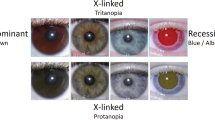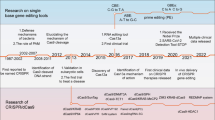Abstract
Background
Podcasts, or episodic digital audio recordings, represent a novel way to reach large audiences for public education. Genetic evaluation has important implications for prostate cancer (PCa) care but is underutilized. We created a series of five podcasts about PCa genetics and tested their usefulness in raising awareness and providing education to lay audiences.
Methods
We recruited 157 men and women from the general public and 100 patients with PCa from across the U.S., who listened to a podcast and completed an online survey. The primary outcome was the perceived usefulness of the podcast (score ≥5 on a published 7-point Likert scale). Secondary outcomes were relevance to informational needs, satisfaction and ease of use, as well as genetic knowledge and attitudes toward genetic testing after listening to the podcasts.
Results
The podcasts were associated with high mean scores for perceived usefulness (5.6/7), relevance to informational needs (5.6/7), satisfaction (5.8/7), and ease of use (5.9/7). After listening to the podcasts, 80–100% correctly answered most key knowledge questions about PCa genetics, and 85% had a positive attitude toward genetic testing. On multivariable analysis, the perceived usefulness of the podcasts was higher among Black/Hispanic adults (p = 0.05) and those with a family history of PCa (p = 0.01).
Conclusions
A podcast series on PCa genetics was perceived as useful and associated with high rates of knowledge for patients with PCa and the general public. Podcasts represent a promising new educational tool to raise awareness about PCa genetic evaluation, particularly for high-risk groups.
This is a preview of subscription content, access via your institution
Access options
Subscribe to this journal
Receive 4 print issues and online access
$259.00 per year
only $64.75 per issue
Buy this article
- Purchase on Springer Link
- Instant access to full article PDF
Prices may be subject to local taxes which are calculated during checkout
Similar content being viewed by others
Data availability
Data will be available only for health/medical/biomedical research purposes. Interested investigators will be required to submit a formal letter of intent outlining research aims, rationale, and approach. Furthermore, documentation of local IRB approval, including a description of type of review, should be submitted with the data request. A Data Use Agreement must be signed by the Institutions involved before any data are released.
References
Pew Research Center Journalism & Media. Podcast Listenership. https://www.journalism.org/chart/sotnm-radio-podcast-listening/. Accessed July, 2019.
Abdous M, Facer BR, Yen CJ. Academic effectiveness of podcasting: a comparative study of integrated versus supplemental use of podcasting in second language classes. Computers Educ. 2012;58:43–52.
Loeb S, Massey P, Leader AE, Thakker S, Falge E, Taneja S, et al. Gaps in public awareness about BRCA and genetic testing in prostate cancer: social media landscape analysis. JMIR Cancer. 2021;7:e27063.
Loeb S, Giri VN. Clinical implications of germline testing in newly diagnosed prostate cancer. Eur Urol Oncol. 2021;4:1–9.
Loeb S, Li R, Sanchez Nolasco T, Byrne N, Cheng HH, Becker D, et al. Barriers and facilitators of germline genetic evaluation for prostate cancer. Prostate 2021;81:754–64.
Chew LD, Bradley KA, Boyko EJ. Brief questions to identify patients with inadequate health literacy. Fam Med. 2004;36:588–94.
Wynia MK, Osborn CY. Health literacy and communication quality in health care organizations. J health Commun. 2010;15(Suppl 2):102–15.
Schwartz LM, Woloshin S, Black WC, Welch HG. The role of numeracy in understanding the benefit of screening mammography. Ann Intern Med. 1997;127:966–72.
Venkatesh V, Davis FD. A theoretical extension of the technology acceptance model: four longitudinal field studies. Manag Sci. 2000;46:186–204.
Proctor E, Silmere H, Raghavan R, Hovmand P, Aarons G, Bunger A, et al. Outcomes for implementation research: conceptual distinctions, measurement challenges, and research agenda. Adm Policy Ment Health. 2011;38:65–76.
Vordenberg SE, Zikmund-Fisher BJ. Characteristics of older adults predict concern about stopping medications. J Am Pharm Assoc (2003). 2020;60:773–80.
Meiser B, Cowan R, Costello A, Giles GG, Lindeman GJ, Gaff CL. Prostate cancer screening in men with a family history of prostate cancer: the role of partners in influencing men’s screening uptake. Urology. 2007;70:738–42.
Weise N, Shaya J, Javier-Desloges J, Cheng HH, Madlensky L, McKay RR. Disparities in germline testing among racial minorities with prostate cancer. Prostate Cancer Prostatic Dis. 2022;25:403–10.
Nwosu AC, Monnery D, Reid VL, Chapman L. Use of podcast technology to facilitate education, communication and dissemination in palliative care: the development of the AmiPal podcast. BMJ Supportive Palliat Care. 2017;7:212–7.
Edwards AL, Shaw PA, Halton CC, Bailey SC, Wolf MS, Andrews EN, et al. “It just makes me feel a little less alone”: a qualitative exploration of the podcast Menopause: Unmuted on women’s perceptions of menopause. Menopause. 2021;28:1374–84.
Dubin JM, Greer AB, Patel P, Carrion DM, Paesano N, Kettache RH, et al. Global survey of the roles and attitudes toward social media platforms amongst urology trainees. Urology 2021;147:64–7.
Ovalle F. American Diabetes Association 2019 Conference Podcast With the Editor-in-Chief: What Are the Outcomes from ADA This Year and What Are the Future Developments in Diabetes? Diabetes Ther. 2019;10:1177–9.
Bowen ME, Fuller W, Kansagara D. From the editors desk: introducing the JGIM bottom line summary and podcast. J Gen Internal Med. 2019;34:1671–72
Acknowledgements
This study is supported by the Department of Defense (W81XWH2010310).
Author information
Authors and Affiliations
Contributions
Conception and design (SL, VNG), Data acquisition (SL, TSN, NB), Data analysis and interpretation (all), Drafting the manuscript (SL), Critical revision of manuscript (all), Statistical analysis (KS), Supervision (SL, VNG).
Corresponding author
Ethics declarations
Competing interests
SL declares equity in Gilead, unrelated to the current study.
Additional information
Publisher’s note Springer Nature remains neutral with regard to jurisdictional claims in published maps and institutional affiliations.
Rights and permissions
Springer Nature or its licensor (e.g. a society or other partner) holds exclusive rights to this article under a publishing agreement with the author(s) or other rightsholder(s); author self-archiving of the accepted manuscript version of this article is solely governed by the terms of such publishing agreement and applicable law.
About this article
Cite this article
Loeb, S., Sanchez Nolasco, T., Siu, K. et al. Usefulness of podcasts to provide public education on prostate cancer genetics. Prostate Cancer Prostatic Dis 26, 772–777 (2023). https://doi.org/10.1038/s41391-023-00648-4
Received:
Revised:
Accepted:
Published:
Issue Date:
DOI: https://doi.org/10.1038/s41391-023-00648-4
This article is cited by
-
Prostate cancer and podcasts: an analysis and assessment of the quality of information about prostate cancer available on podcasts
Prostate Cancer and Prostatic Diseases (2024)
-
Addressing gaps in healthcare provider knowledge regarding germline testing for prostate cancer through development and testing of a virtual genetics board
Prostate Cancer and Prostatic Diseases (2024)
-
Podcasting for Public Knowledge: A Multiple Case Study of Scholarly Podcasts at One University
Innovative Higher Education (2024)



